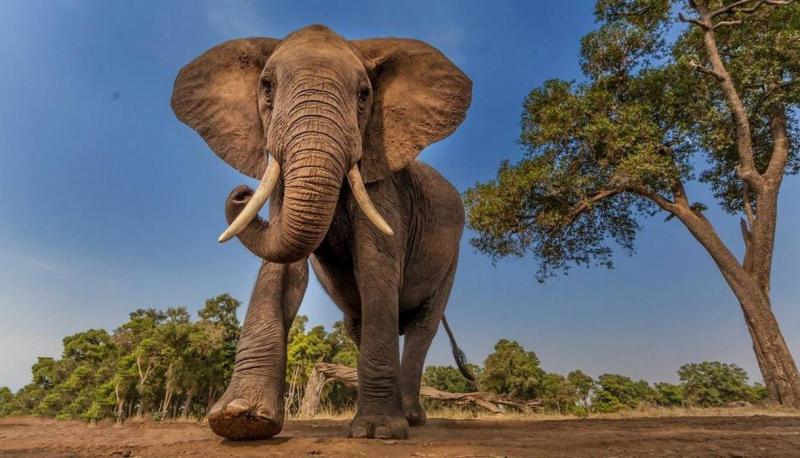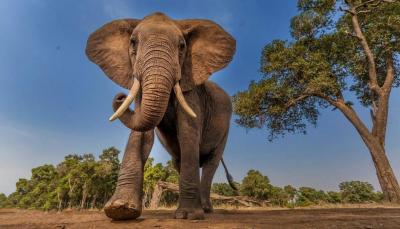A new study published in the journal "Nature Ecology & Evolution" on Monday revealed that African elephants call each other and respond to names, a behavior exhibited by only a few wild animals. Scientists believe that animals with complex social structures and family groups that frequently separate and reunite are more likely to use names. According to the study, names are part of the elephants' low-frequency communication that can be heard over long distances in savanna regions.
Duke University ecologist Stuart Pimm, who did not participate in the study, commented, "If you are responsible for a large family, you should be able to say: 'Hello, Virginia, come here.'" He noted that it is extremely rare for wild animals to call each other by unique names. Humans have names, of course, and our dogs obey when we call them by their names. Young dolphins invent their own names, called signature whistles, and parrots may also use names. Each of these animal species has the ability to learn to produce unique new sounds throughout their lives, a rare talent that elephants also possess.
The study employed machine learning biologists to uncover the use of names in an audio library of savanna elephant sounds recorded in Samburu National Reserve in Kenya and Amboseli National Park. Researchers tracked elephants in SUVs to observe who calls and who seems to respond— for example, if a mother beckoned her calf, or called a juvenile who later joined the family group. By analyzing the audio data alone, a computer model predicted which elephant was being addressed, likely due to its name being included. When fed meaningless data, the model could only identify 8% of the mothers' calls.
"Like humans, elephants use names, but they probably do not use names in the majority of phrases," said study author and Cornell University biologist Mickey Bardo. The roars of elephants include sounds below the range of human hearing. Scientists still do not know which part of the vocalization is the name.
Co-author and Colorado State University ecologist George Wittemyer, who is also a scientific advisor to the nonprofit organization "Save the Elephants," stated, "Elephants are incredibly social, they are always communicating and touching each other. Perhaps this naming is one of the things that supports their ability to communicate with individuals."




